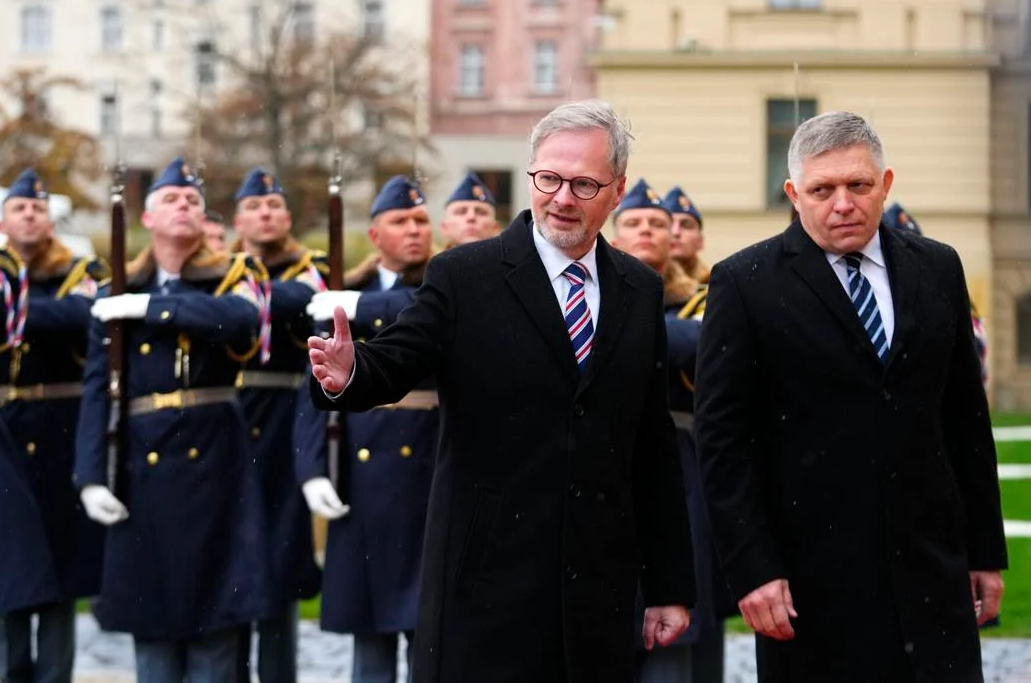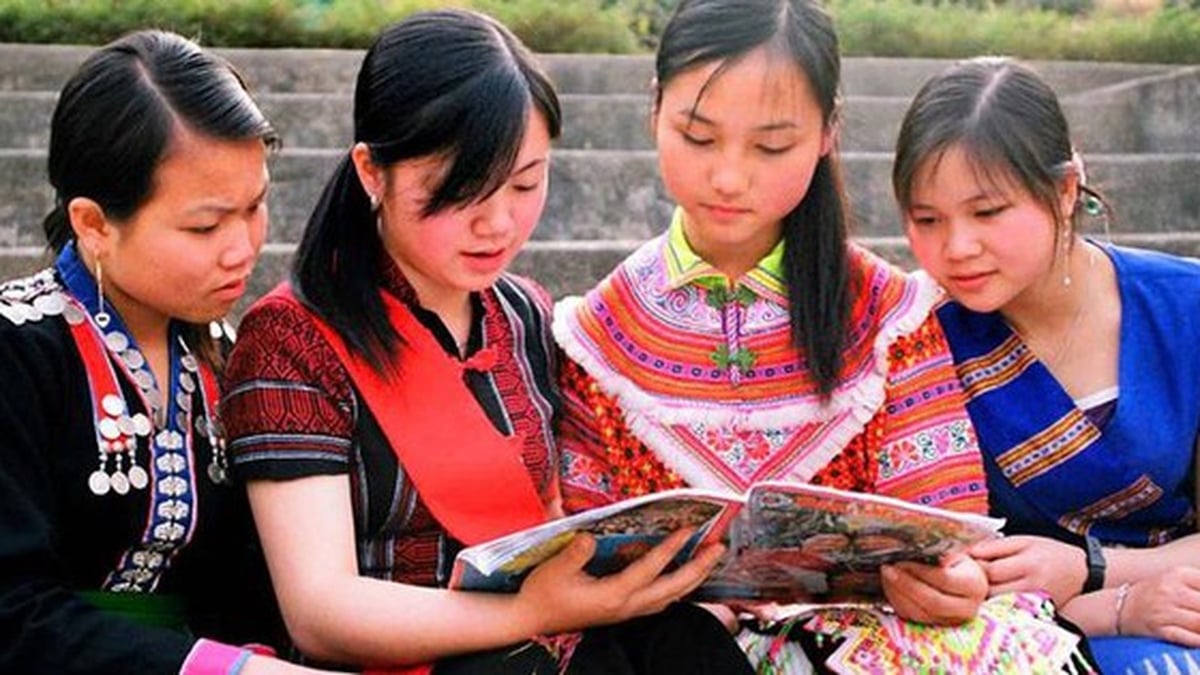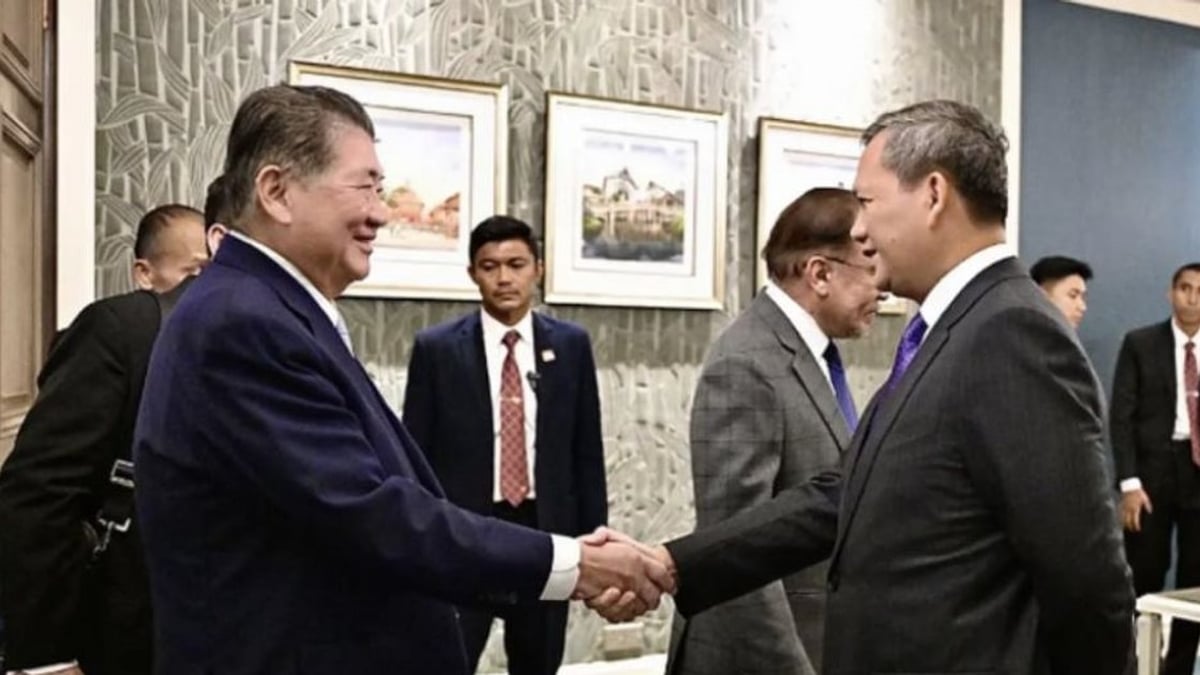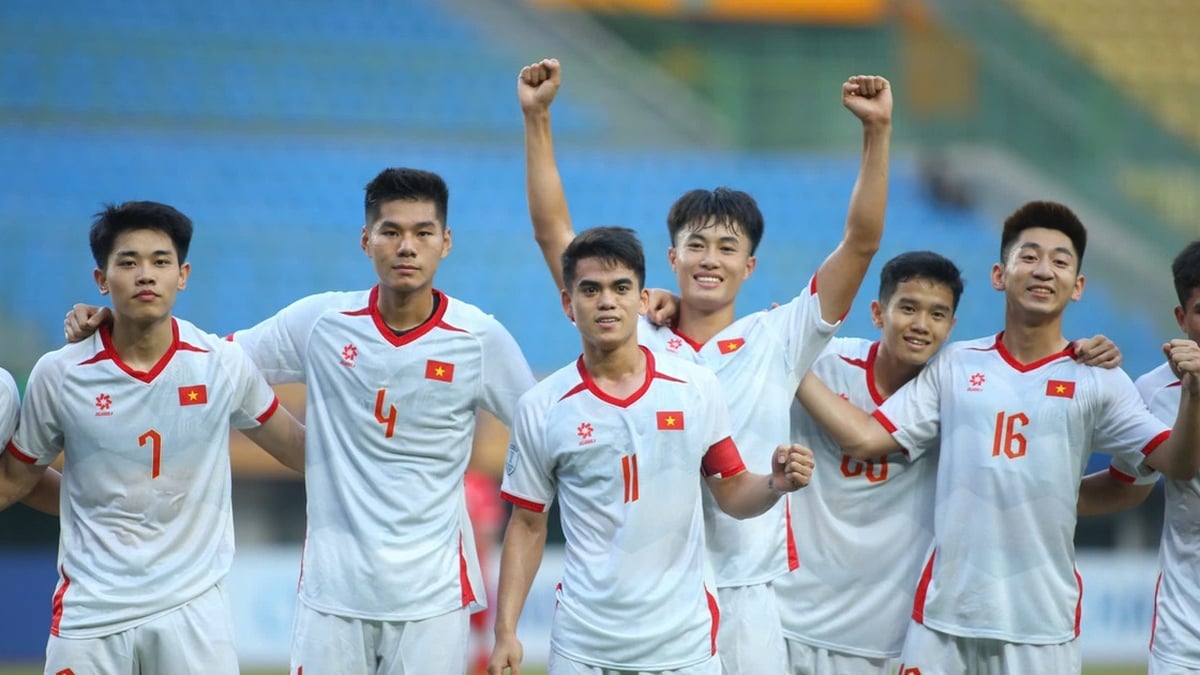Under the leadership of a newly elected prime minister who is considered to have “pro-Russian” views, Slovakia – a country of 5.5 million people that shares a border with Ukraine and is a member of both the European Union (EU) and the North Atlantic Treaty Organization (NATO) – has raised concerns that it could start down the same path as Hungary.
“I informed the EC President that the new Slovak government will not provide military assistance to Ukraine and that we will focus only on humanitarian aid,” Fico said in a Facebook post after his first meeting with European Commission (EC) President Ursula von der Leyen last month, titled “From today onwards Slovakia will have its own position in Brussels.”
Same argument
Since Russia launched its military campaign in Ukraine, Slovakia has been one of Kiev's most supportive countries per capita.
Despite having a smaller military in NATO, Slovakia was one of the first countries to send Ukraine major Soviet-era offensive weapons, such as MiG-29 fighters and T-72 tanks, as well as S-300 air defense systems and domestically produced Zuzana self-propelled howitzers.
In total, the country that shares a border with Ukraine in the east has sent 13 military aid packages worth 671 million euros.
Mr Fico has vowed to end this support, arguing like Hungarian Prime Minister Viktor Orban that it only fuels the ongoing war, and has instead called for immediate peace talks.
Accordingly, on November 8, the new Cabinet led by Mr. Fico refused to approve the 14th and final military aid package for Ukraine. The aid package worth 40.3 million Euros was prepared by the interim technocratic Cabinet before the transfer of power.

Slovakian Prime Minister Robert Fico (right) is greeted by his Czech counterpart Petr Fiala upon his arrival in Prague, Czech Republic, November 24, 2023. Photo: AP/Post Register
Recently, after meeting with Czech Prime Minister Petr Fiala in Prague on November 24, Mr. Fico once again emphasized that he considered the war between Ukraine and Russia a frozen conflict and could not be resolved by sending weapons to the Ukrainian armed forces.
Mr Fico was in Prague on his first foreign trip since taking office. It is a tradition for the leaders of the two countries that formed Czechoslovakia to visit each other after being elected before visiting any other country. They have remained close since Czechoslovakia split into the Czech Republic and Slovakia in 1993.
The Czech Republic, or Czechia, is a staunch supporter of Ukraine and has supplied Kiev with heavy weapons and other weapons. Mr. Fico said he respected the Czech Republic's position and reiterated Slovakia's readiness to provide humanitarian and other aid to Ukraine.
However, the Slovak government's new stance on stopping military aid appears to be primarily at the state level.
“Mr. Fico will not prevent businesses that have supported him from making a profit by supplying weapons to Ukraine,” said Milan Nic, a senior fellow at the German Council on Foreign Relations (DGAP).
In parallel, Bratislava has begun to consider business opportunities with its larger neighbour once Kiev enters a period of reconstruction – particularly potential contracts for Slovakia’s once-mighty defence industry.
At the EU summit on 27 October, Mr Fico made no significant effort to block EU aid to Ukraine or further sanctions against Russia. And the Slovak prime minister seems unlikely to join Mr Orban of Hungary in any obstruction, at least for now.
Slovakia's Foreign Minister Juraj Blanar recently said that Slovakia is ready to discuss an additional €50 billion EU aid package for Ukraine, “as long as these resources are used for specific purposes and do not get lost in the country's corrupt environment,” and as long as Slovak farmers are protected from cheap imports from Ukraine, and Slovak companies can participate in Ukraine's reconstruction.
Different ways of expression
What is more important is that Mr. Fico has repeatedly stated that he would not object to Slovak arms companies selling equipment to Ukraine under private contracts.
“If a company wants to produce weapons and supply them, of course we will not prevent this,” Mr. Fico said at a press conference after meeting with his right-hand man – new Slovak Defense Minister Robert Kalinak, on November 6.
All this suggests that Mr Fico’s opposition to military aid is largely performative. And unlike Mr Orban, Mr Fico may not have serious ideological objections to supporting Ukraine, especially if Slovakia, or his SMER party, stands to gain from it.
Mr Fico would likely only join Mr Orban in blocking EU aid if the Slovak prime minister had a serious dispute with the Commission over another issue, such as efforts to re-establish control of the country’s judiciary to block any further corruption investigations.
Furthermore, Slovakia could benefit significantly from supplying arms to Ukraine because Bratislava has a strong defense industry.

Slovakian-made Zuzana self-propelled howitzer. Photo: The Slovak Spectator
During the Cold War, Slovakia's industrial plants deep in the Carpathian Mountains were a major supplier of heavy weapons such as tanks to the armies of the Warsaw Pact countries. The industry collapsed after democracy was restored in 1989.
Now, Slovakia’s defense companies are thriving again. According to data from the FinStat portal, the 10 largest arms companies in Slovakia have a combined turnover of more than 362 million euros. The bulk of the sales come from the state-owned DMD Group, which includes Konstrukta-Defense and ZTS Special, and the MSM Group, part of the Czechoslovak Group (CSG).
CSG is a major ammunition producer in Slovakia through its stakes in ZVS Holding, which produces 150mm ammunition, and VOP Novaky. The company has prospered by supplying large-caliber ammunition, ground systems, tanks, infantry fighting vehicles (IFVs), rocket launchers and artillery to Ukraine. Its owner, Michal Strand, the founder’s son, joined Forbes’ list of Czech billionaires this year.
These defense companies are now ramping up production. While Slovakia’s ammunition output averaged 50,000 rounds this year, the country is expected to produce 100,000-150,000 rounds next year, said Alexander Duleba, a senior fellow at the Slovak Foreign Policy Association.
The SMER party has good reasons to facilitate these defense contracts because it has close ties to Slovak defense companies, led by the MSM Group.
Vladimir Snidl, a defense journalist for the DennikN daily, told bne Intelli News that Fico “has no way to terminate the already contractual supplies” to Ukraine, and furthermore “he has no interest” in doing so.
Mr. Snidl pointed out that the new Slovak Defense Minister Robert Kalinak has a “good relationship” with Jaroslav Strnad, the founder of CSG. “I expect Minister Kalinak to be very open to CSG,” Mr. Snidl said.
The Zuzana self-propelled howitzer systems supplied to Ukraine were produced by the Slovak company Konstrutka Defense. The head of Konstrutka, Alexander Gursky, is an active supporter of Ukraine and has good relations there. But Gursky has resigned and will be replaced by a candidate nominated by the Slovak defense minister.
Looking ahead, these potential deals for SMER-supporting businesses appear to outweigh any concerns Mr Fico may, or may not, have about “adding fuel to the fire” of the Russia-Ukraine conflict .
Minh Duc (According to Intelli News, AP)
Source




























![[Photo] National Assembly Chairman attends the seminar "Building and operating an international financial center and recommendations for Vietnam"](https://vphoto.vietnam.vn/thumb/1200x675/vietnam/resource/IMAGE/2025/7/28/76393436936e457db31ec84433289f72)








































































Comment (0)